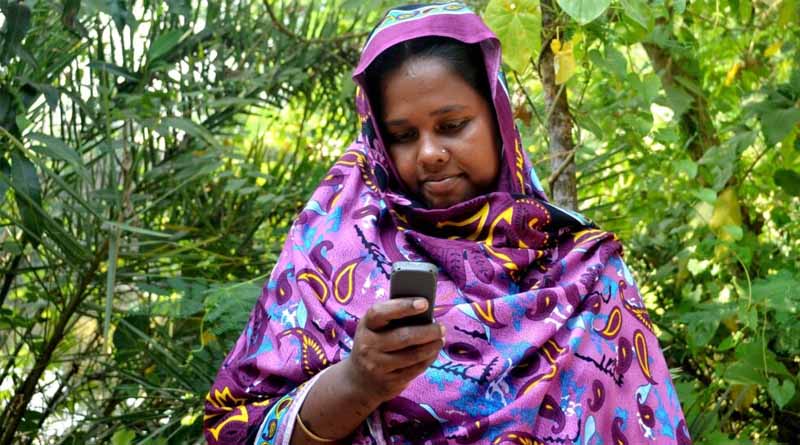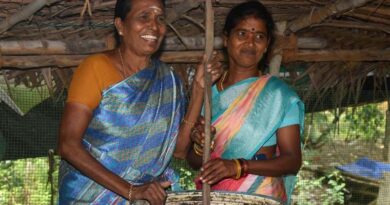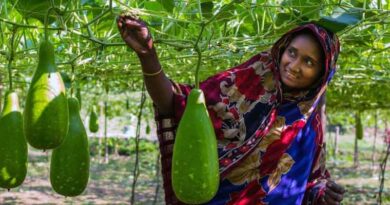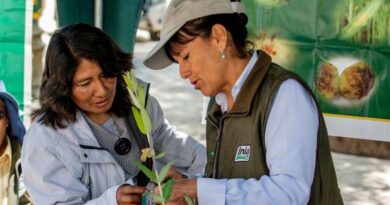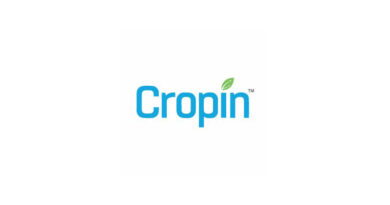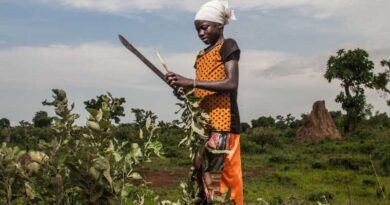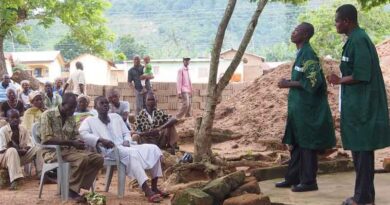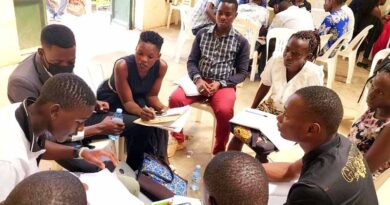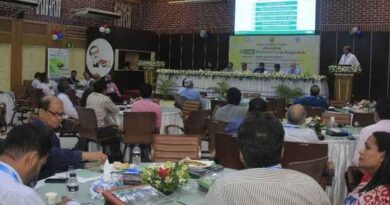Empowering women in agriculture: The digital leap in Bangladesh
08 May 2024, Bangladesh: In the heart of Bangladesh, where agriculture embroiders the vast landscape of rural livelihoods, a digital revolution is quietly unfurling. Although gradual, this change holds the promise of transforming the traditional agricultural practices that have been the backbone of the nation. However, the fulcrum of this transformation—empowering women farmers through digital advisory services—remains a story only partially told.
Digital advisory services have emerged as vital tools in bridging the knowledge gap. They offer climate-smart plant health practices and promote sustainable farming. Such services are significant because they can provide timely and relevant information to farmers, empowering them to make informed decisions about crop management, pest and disease control, and modern agricultural practices.
The digital divide and its impact
Despite women’s critical role in agriculture, accounting for a significant portion of the agricultural labour force, they face considerable barriers in accessing vital agricultural information and resources. Thus, digital advisory services, poised as a beacon of hope, often find their light dimmed by challenges. These include low digital literacy, language barriers, and a scarcity of content tailored for women.
CABI’s Plantwise Plus programme aims to bridge this gap by integrating digital tools for climate-smart plant health practices. However, the path is not devoid of hurdles. Unstable internet connectivity, the high cost of mobile phone ownership, and prevailing cultural norms impede women’s engagement with these digital services, underscoring the need for inclusive interventions.
Revealing the challenges women face
Recognizing many of these challenges, CABI embarked on a study in collaboration with The Infrastructure Investment Facilitation Company (IIFC).
The study, conducted across four rural districts, involved interactions with 100 service providers, plant doctors, agro-dealers, and farmers. It aimed to assess the efficacy of smart advisory tools and the barriers women face in accessing these services.
The study revealed an intricate web of challenges that span beyond technological barriers, including societal norms and economic constraints. While mobile ownership emerged as a pivotal factor in information dissemination, significant hurdles, such as high data costs and limited awareness about digital services, persist.
Furthermore, the study accentuates the importance of continuous training and awareness campaigns to foster digital literacy in the agricultural community, particularly among women.
Bridging the divide – recommendations for empowerment
To navigate these challenges and ensure the equitable adoption of digital advisory services, the study proposes a suite of recommendations:
- Enhanced digital literacy: Tailored training programmes are imperative to improve digital literacy among women and youth, recognizing their pivotal role in agriculture.
- Localized content: Content that resonates with the local agricultural context and is available in native languages can significantly increase engagement and utility.
- Infrastructural improvements: Addressing network issues and making digital tools more affordable and accessible can significantly uplift the adoption of digital services.
- Gender-specific strategies: Formulating strategies that include women and youth in digital agricultural advisory services is crucial for equitable access.
The path forward
As Bangladesh strides toward a digitally empowered agricultural future, the key to unlocking its full potential is not just about technology; it’s about inclusivity. Ensuring that women, who form the cornerstone of rural agriculture, have equal access to digital advisory services is not just a step toward gender equality but a leap toward sustainable agricultural practices that can nourish the nation and its economy.
After all, the digital transformation of agriculture in Bangladesh is not just about technology; it’s about inclusivity. Ensuring that women, youth farmers have equal access to digital advisory services is essential for fostering sustainable agricultural practices that can nourish the nation. This journey of digital empowerment is a beacon of hope for women farmers, promising a future where technology and tradition coalesce to create a more prosperous and equitable agricultural landscape.
Also Read: BASF Launches New Insecticide Efficon With Axalion Active Introduced Under IRAC Group 36
(For Latest Agriculture News & Updates, follow Krishak Jagat on Google News)

